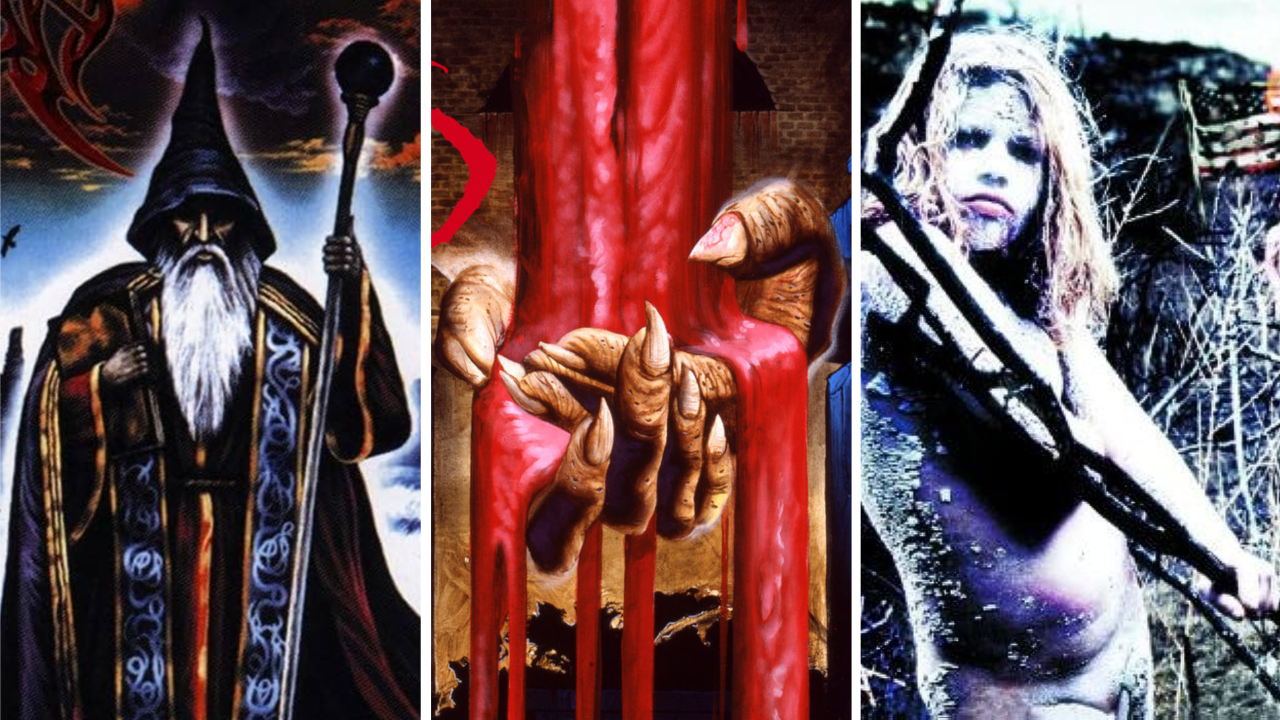Tragically, music is not a meritocracy. You can be the best and most original band in the world, but you still won’t make it far without a loyal fanbase, talented businessmen and a good, stable lineup on your side. The 10 names below are testament to that. From peerless “technical doom metal” to major-label nu metal prospects, these 1990s acts were so talented that they should have become iconic in heavy music.

Auberon
How this Swedish extreme metal crew didn’t become megastars across Europe is mind-boggling. Their 1998 debut, The Tale Of Black, was an ingenious fusion of black metal vocals, melodeath guitars and big, cheesy power metal choruses: three things the continent could not get enough of at the time! Sadly though, Auberon only released one more album in 2001 before vanishing into near-total inactivity.
Shotgun Messiah
Although Shotgun Messiah formed as a glam band in the mid-’80s, it’s what they did after the dawn of the next decade that was ingenious. Their second and third albums tried to revive the dying hair metal movement by imbuing the genre with a nascent industrial clang. The resulting music was both inventive and excellent, yet it never caught on, and the band dissolved in 1993.
Alchemist
Cited by historians as Australia’s first progressive metal band, Alchemist imbued tech-death with barrels of groove, plus influence from the indigenous music of their home continent. Debut album Jar Of Kingdom was a bit ropey, but 1995’s Lunasphere and especially follow-up Spiritech are still magnificent. Despite this four-piece basically foreseeing the 2000s progressive metal revival that would make Mastodon and Gojira stars, they languished in obscurity before disbanding in 2010.
Amen
On paper, Amen did everything right to get in on the ground floor of the nu metal revolution. They formed nice and early (in 1994) before inking a deal with Roadrunner, getting produced by Ross Robinson and touring with Slipknot and Machine Head. However, tumult with their label and a host of lineup changes meant the band lost momentum in the early 2000s.
Bethlehem
Bethlehem should have been received as the spiritual successors to Celtic Frost. Their 1994 debut, Dark Metal, was an all-considering cacophony of black, death, doom and progressive metal styles that should have been hallowed across the scene. It felt peerless in its day and, almost 30 years on, remains criminally obscure. The Germans have been experimenting ever since, soundtracking movies and dabbling in industrial music.
Drowningman
Drowningman formed in New England in the mid-’90s, and thus were part of the same metalcore scene that gave the world Converge and Cave In. However, the band folded in 2002 amid record label disputes and have repeatedly reunited and broken up since. It’s a shame, because erratic yet melodic debut album Busy Signal At The Suicide Hotline screamed that this five-piece had the potential for greatness.
Gutted
Gutted’s debut album, Bleed For Us To Live, could have been a whole new touchstone for underground death metal. Death/doom, black metal and nascent groove metal all played their part in this unsung gem, yet its 1994 release meant public interest was switching over to the burgeoning nu metal scene. Gutted released one more album in 1997 before sadly calling it a day the same year.
Human Waste Project
This one’s heartbreaking. Human Waste Project’s sole album, E-lux, was one of the finest releases of 1997, with singer Aimee Echo adding some fresh, feminine angst to the then-rising nu metal sound. It even got released by the Disney-owned Hollywood Records, but the band got fucked over by a lacklustre marketing campaign and never fulfilled their commercial potential. Following a 1998 Coal Chamber tour, they abruptly imploded.
Sadist
20 years after such progressive rockers as Goblin ruled Italy, countrymen Sadist emerged to infuse their keyboard-centric deviations into death metal. Debut album Above The Light was, objectively, fucking excellent, yet the Genoa experimentalists suffered from their own genius and couldn’t resonate with an unready extreme metal audience. Three decades down the line, no band has ever recreated Sadist’s sublimely distinct sound.
Confessor
Confessor released their debut album, Condemned, on Earache Records at the height of the label’s powers. However, the Americans didn’t stick, likely because they were too far ahead of the game. The “technical doom metal” pioneers made the drums their lead instrument, scurrying wildly while the guitars played simpler, rhythmic riffs. Their approach has never been imitated and they deserve some serious applause.

